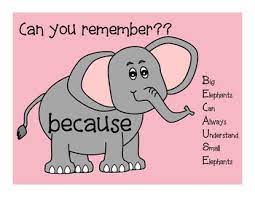Do you struggle with spelling the word ‘because’ correctly? Don’t worry, you’re not alone! In this article, we’ll show you some helpful tips and tricks to master the correct spelling of ‘because’.
Avoid common mistakes, understand the etymology, and learn pronunciation tips. We’ll also share memory tricks and strategies to reinforce the correct spelling.
Get ready to improve your spelling skills and become confident in spelling ‘because’ correctly. Let’s dive in!
The Importance of Spelling ‘Because’ Correctly
Spelling ‘because’ correctly is important for you because it enhances your credibility as a writer and ensures effective communication with your audience.
When you spell ‘because’ correctly, you demonstrate that you have a strong command of the English language and a good understanding of grammar. This attention to detail shows your readers that you take your writing seriously and that you have put effort into crafting your message.
It also helps you avoid any confusion or misinterpretation of your words, as misspelled ‘because’ can lead to misunderstandings. By spelling ‘because’ correctly, you show respect for your readers and their time, making it easier for them to understand and engage with your writing.
Common Spelling Mistakes to Avoid
To avoid common spelling mistakes, make sure you’re consistently using the correct spelling of ‘because’.
One common mistake to watch out for is swapping the letters ‘e’ and ‘a’ in the word. Sometimes, people mistakenly spell ‘because’ as ‘becuase’ or ‘becasue’.
Another mistake to be aware of is adding unnecessary letters to the word, such as ‘becuase’ or ‘becuase’.
Additionally, be cautious of using the word ’cause’ as a substitute for ‘because’. While ’cause’ is a valid word, it isn’t the correct spelling of ‘because’.
Lastly, pay attention to the correct placement of the letter ‘u’ in the word. Avoid spelling ‘because’ as ‘becuase’ or ‘becasue’.
Understanding the Etymology of ‘Because
When understanding the etymology of ‘because’, it’s important to recognize that the correct spelling plays a crucial role in conveying your message effectively.
The word ‘because’ originated from the Middle English word ‘bi cause’, which means ‘by cause of’. The ‘bi’ part was later combined into ‘because’, as we know it today.
This conjunction is used to introduce a reason or explanation in a sentence. Understanding the etymology helps us appreciate the historical development of the word and its significance in communication.
Pronunciation Tips for ‘Because
When pronouncing the word ‘because’, keep in mind the silent ‘e’ rule. The ‘e’ at the end of the word is silent, so it shouldn’t be pronounced.
Additionally, stress the second syllable of ‘because’, which is ’cause’. By emphasizing the ’cause’ syllable, you’ll pronounce the word correctly.
Silent ‘E’ Rule
Remember to pronounce the silent ‘e’ at the end of ‘because’ when speaking. This rule applies to many words in English.
When you see an ‘e’ at the end of a word, it’s usually silent, but it affects the pronunciation of the preceding vowel.
In the case of ‘because’, the ‘e’ makes the ‘u’ sound like a long ‘u’. So, instead of saying ‘becaus’ with a short ‘u’ sound, remember to say ‘because’ with a long ‘u’ sound.
This may seem like a small detail, but it can make a big difference in how your words are understood. So, next time you use the word ‘because’, remember to pronounce that silent ‘e’ to sound clear and confident.
Stress on Second Syllable
To continue with the discussion on the pronunciation of ‘because’, it’s important to note that the stress in this word falls on the second syllable. When saying ‘because’, you should emphasize the second syllable, which is the ’cause’ part of the word.
This means that you should pronounce it as ‘buh-CAUSE’ rather than ‘buh-cause’ or ‘BUH-cause’. By placing the stress on the second syllable, you ensure that the word is pronounced correctly and that your communication is clear.
Rules and Exceptions in Spelling ‘Because
Now let’s talk about the rules and exceptions when spelling ‘because’.
It’s important to be aware of common spelling mistakes, such as confusing ‘e’ and ‘a’ in the word.
Additionally, pay attention to the tricky vowel sounds that can sometimes trip you up.
Lastly, try to memorize spelling rules to make spelling ‘because’ a breeze.
Common Spelling Mistakes
If you’re unsure about how to spell ‘because’ correctly, let’s break down some common spelling mistakes and learn the rules and exceptions.
One common mistake is spelling ‘because’ as ‘becuase’. Remember, the correct spelling is ‘because’ with an ‘a’ after the ‘e’.
Another common mistake is adding an unnecessary ‘u’ and spelling it as ‘becuase’. Avoid this error by remembering that ‘because’ doesn’t have a ‘u’ in it.
Additionally, some people mistakenly spell ‘because’ as ‘beacause’, with an extra ‘a’. To avoid this mistake, remember that ‘because’ only has one ‘a’ in the middle.
Lastly, some people may incorrectly spell ‘because’ as ‘becasue’, with the ‘s’ and ‘u’ switched. Remember to keep the ‘s’ before the ‘u’ to spell ‘because’ correctly.
Tricky Vowel Sounds
When it comes to spelling ‘because’ correctly, mastering the tricky vowel sounds is essential. The word ‘because’ contains two vowel sounds: the short ‘e’ sound and the schwa sound.
The short ‘e’ sound is represented by the letter ‘e’ in the word ‘bed’, while the schwa sound is the unstressed vowel sound often represented by the letter ‘u’. However, there are exceptions to these rules.
For example, in the word ‘be’, the vowel sound is represented by the letter ‘e’ but sounds like a short ‘i’. Another exception is the word ‘said’, where the vowel sound is represented by the letters ‘ai’ but sounds like a long ‘e’.
Memorizing Spelling Rules
To master the spelling of ‘because’, you need to memorize the spelling rules and exceptions associated with this word.
The general rule is to spell ‘because’ as it sounds, with a ‘c’ followed by an ‘a’, ‘u’, and ‘se’. However, there’s an exception when adding a suffix.
If the suffix begins with a vowel, such as ‘-ing’ or ‘-ed’, the ‘e’ in ‘because’ is dropped. For example, ‘becoming’ and ‘became’.
Another exception is when ‘because’ is abbreviated to ’cause’. In this case, the ‘e’ is also dropped.
Memorizing these spelling rules will ensure that you spell ‘because’ correctly in different contexts. Practice using ‘because’ in sentences and pay attention to the spelling rules to reinforce your understanding.
Memory Tricks to Remember the Correct Spelling
Use these memory tricks to help you remember the correct spelling of ‘because’.
One effective trick is to break the word down into smaller parts. Start with ‘be’ and think of it as the beginning of the word ‘bed’. Then, add ’cause’ to it, which sounds like the word ’cause’ we use in everyday language.
Another trick is to create a visual image in your mind. Imagine a bee buzzing around a cause, like a protest or a reason for something happening. Associating the word ‘because’ with this mental image can help reinforce the correct spelling.
Lastly, practice writing the word ‘because’ multiple times to enhance muscle memory.
With these memory tricks, you’ll be able to spell ‘because’ correctly every time.
Strategies for Practicing and Reinforcing the Correct Spelling
To reinforce your spelling of ‘because’, try using these effective strategies for practicing and reinforcing correct spelling.
- Create flashcards with the word ‘because’ on one side and the correct spelling on the other. Review these flashcards regularly to improve your memory and recognition of the word.
- Practice writing sentences that include the word ‘because’ correctly spelled. This will help you internalize the correct spelling through repetition.
- Participate in spelling bees or spelling competitions. These events provide a fun and competitive environment to test your spelling skills and reinforce the correct spelling of ‘because’.
- Consider using online spelling games or apps that are specifically designed to improve spelling abilities.
Resources and Tools for Improving Your Spelling Skills
Enhance your spelling abilities by utilizing various resources and tools that foster improvement in your spelling skills. One of the most effective resources is a good dictionary. Make sure to choose one that provides clear definitions and includes correct spellings.
Online dictionaries such as Merriam-Webster or Oxford Dictionaries are easily accessible and can be used anytime, anywhere.
Another useful tool is a spell-checker, which is available in most word processing software. It can quickly identify and correct misspellings as you type.
Additionally, there are numerous spelling apps and websites that offer interactive exercises and quizzes to help you practice and reinforce your spelling skills. Some popular options include Spellzone, SpellingCity, and Grammarly.
Conclusion: Mastering the Spelling of ‘Because
To become a master at spelling the word ‘because’, practice regularly and familiarize yourself with common spelling rules. By consistently reviewing and applying these rules, you’ll enhance your spelling skills and eliminate any errors when spelling ‘because’.
Additionally, make use of mnemonic devices or memory tricks to help you remember the correct spelling. For example, you can create a sentence where each word begins with the letters of ‘because’ in the correct order.
Furthermore, don’t hesitate to seek assistance from online resources or spelling apps that provide interactive exercises and quizzes to reinforce your learning.
With dedication and persistence, you’ll soon conquer the spelling of ‘because’ and confidently use it in your writing.
Frequently Asked Questions
Is the Correct Spelling of ‘Because’ Important for Professional Communication?
Yes, the correct spelling of ‘because’ is important for professional communication. It shows attention to detail and professionalism. Using the correct spelling helps you convey your message clearly and effectively.
What Are Some Other Commonly Misspelled Words in the English Language?
There are many other commonly misspelled words in the English language. It’s important to be aware of these mistakes and make an effort to improve your spelling skills.
How Did the Word ‘Because’ Originate and Evolve Over Time?
Because is derived from the Middle English word “bi cause,” meaning “by reason of.” Over time, it evolved into the word we use today. Its spelling has remained relatively consistent throughout its history.
Are There Any Regional Variations in the Pronunciation of ‘Because’?
Yes, there are regional variations in how ‘because’ is pronounced. Different accents and dialects can affect the way people say the word. Keep listening and learning from others’ speech patterns.
Are There Any Specific Spelling Rules or Exceptions to Keep in Mind When Spelling ‘Because’?
There are some specific spelling rules and exceptions to keep in mind when spelling ‘because’. It’s important to remember that the word ‘because’ has a silent ‘e’ at the end.
Conclusion
So there you have it, folks! By following these spelling tips and tricks, you can confidently spell ‘because’ correctly every time. Remember the importance of accurate spelling, and avoid common mistakes.
Understanding the etymology and pronunciation of ‘because’ can also help improve your spelling. Use memory tricks and practice regularly to reinforce the correct spelling.
And don’t forget to utilize the resources and tools available to enhance your spelling skills. With dedication and practice, you can master the spelling of ‘because’ effortlessly.



